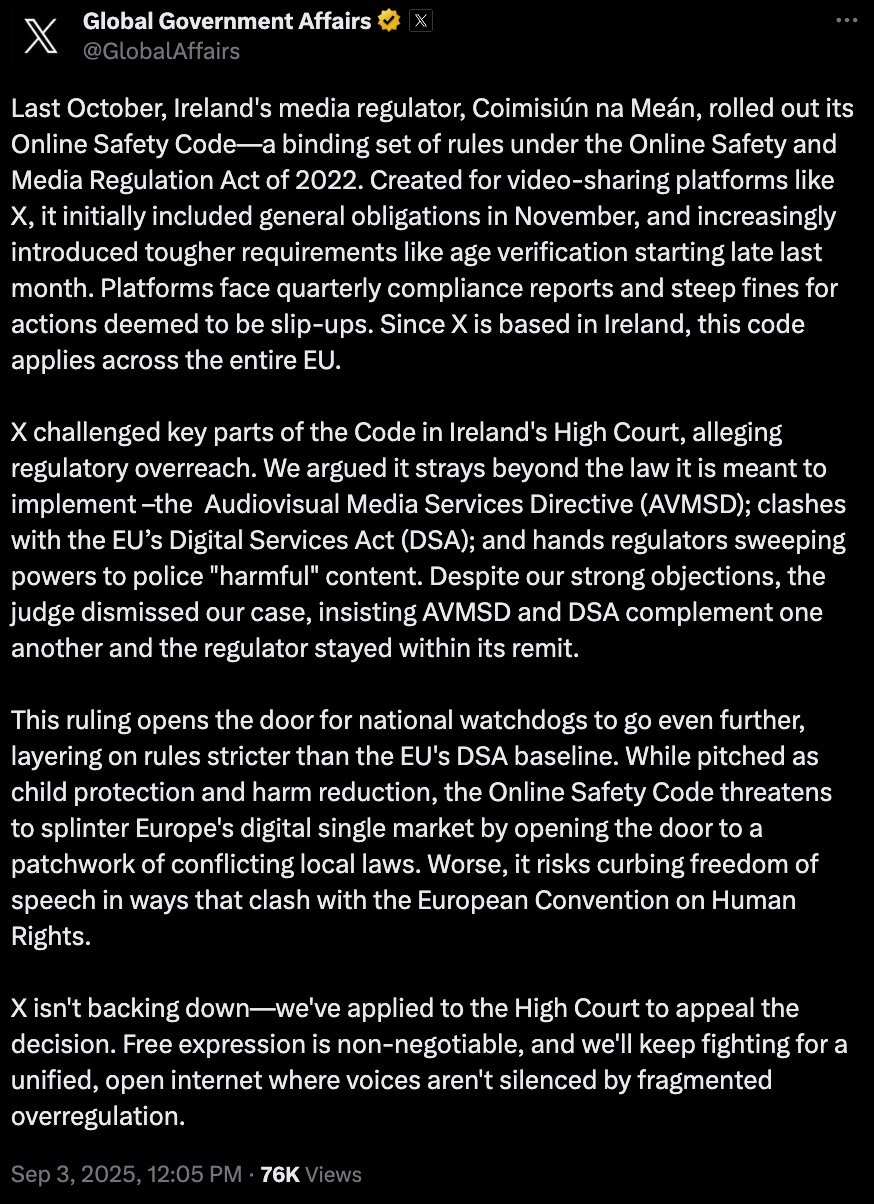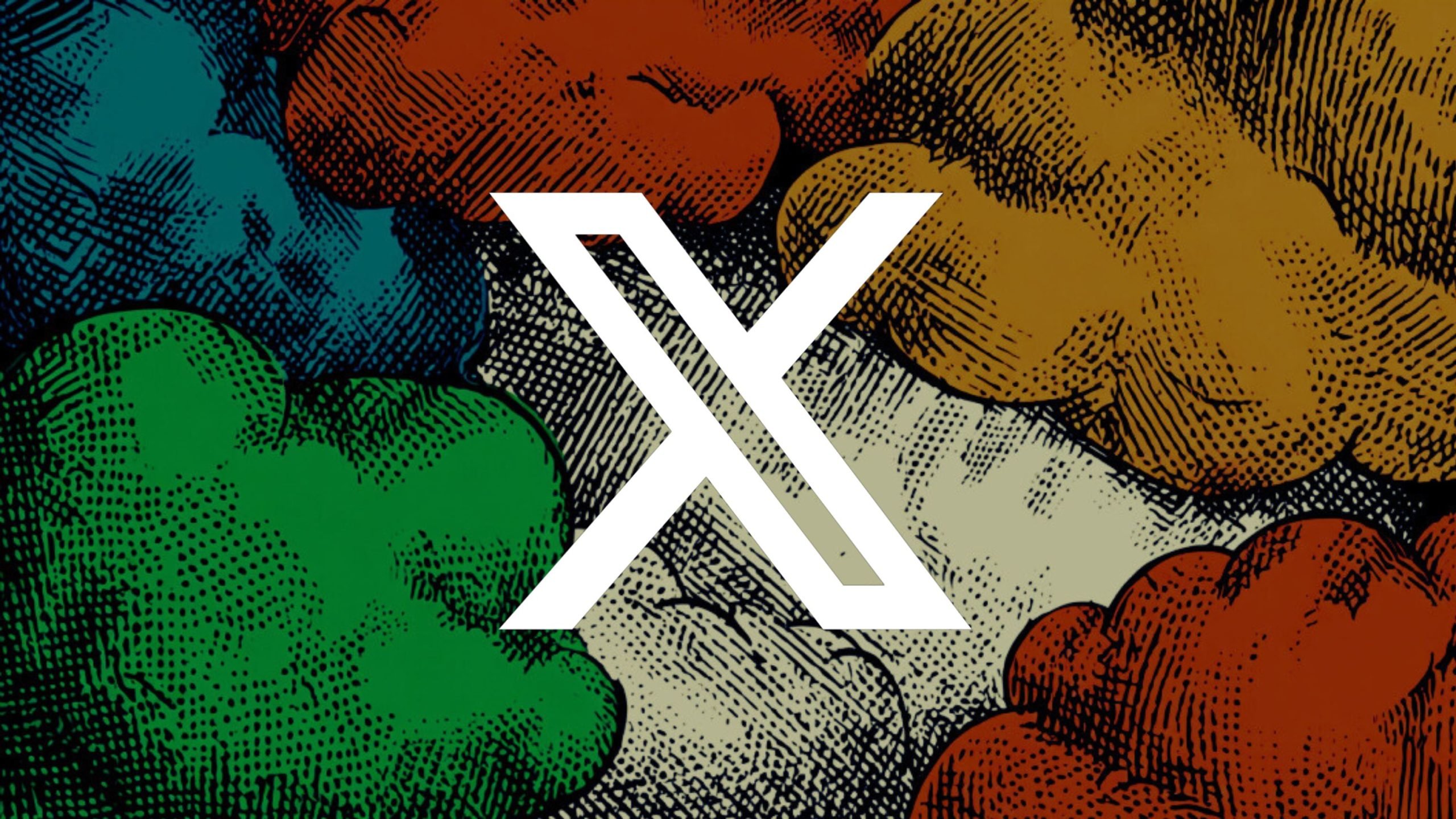X is mounting a fresh legal challenge against Ireland’s censorship-driven “Online Safety Code,” seeking to reverse a High Court ruling that dismissed its case earlier this summer.
The company argues the new regulatory framework opens the door to broad censorship and undermines legal protections for speech across the European Union.
The original lawsuit, heard earlier this year, focused on whether Ireland’s Code went beyond the authority granted by the Audiovisual Media Services Directive (AVMSD) and conflicted with the EU’s Digital Services Act (DSA).
The court ruled in July that the Code fell within the limits of both, stating that the Irish regulator had acted lawfully under the 2022 Online Safety and Media Regulation Act.
That judgment has now been challenged.
X has warned that the ruling sets a precedent that affects all 27 member states. The company said in a statement that the Code effectively stretches across the entire bloc, with heavy reporting demands and the threat of large fines for what it called “slip-ups.”
“This ruling opens the door for national watchdogs to go even further,” the company stated, voicing concern over the long-term implications of allowing individual states to impose stricter content controls.
While governments frame these laws as protecting users from online harm, X argued the result could be a fractured regulatory landscape that breaks apart the EU’s digital single market.
“While pitched as child protection and harm reduction, the Online Safety Code threatens to splinter Europe’s digital single market by opening the door to a patchwork of conflicting local laws.”

X also argued that the Code grants Irish regulators disproportionate authority to control online content and warned that it could conflict with basic civil liberties.
“It risks curbing freedom of speech in ways that clash with the European Convention on Human Rights,” the company stated. “Free expression is non-negotiable, and we’ll keep fighting for a unified, open internet where voices aren’t silenced by fragmented overregulation.”
The company emphasized that it would not retreat from the legal fight. “X isn’t backing down,” the statement read.
The Online Safety Code, introduced last year by Coimisiún na Meán, applies to video-sharing platforms and includes obligations that have steadily become more stringent.
In addition to broad content monitoring duties, platforms must implement age verification tools and submit quarterly compliance reports or face financial penalties.
Supporters of Ireland’s approach say it complements the EU’s DSA, which took effect in February and established a set of common rules for major online platforms. But these laws have been criticized for shifting the balance away from free expression and toward centralized control over what can be said online.
Ireland plays an outsized role in how these rules are applied, given the number of global tech giants that operate out of Dublin.
Any content regulation introduced there inevitably affects users far beyond the country’s borders, turning national policy into de facto EU-wide enforcement.










